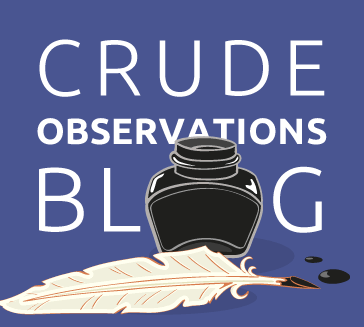If it seems for the past few weeks that you can’t open a newspaper or google a hockey score without someone seeming to take a drive by shot at Canada, well you’d be correct.
We seem, for better or worse, to have gone from the country that no one pays attention to, to an international pariah – at once a capricious, free-trade exploiting, protectionist, robber baron to a climate-killing environmental laggard and the daggers are flying from both the left and the right, from enemies and friends both familiar and new.
Let’s take a look at some of the examples:
Bill McKibben – the founder of 350.org, one of the most “successful” environmental lobby groups and the voice of the anti-oilsands/pipelines/fossil fuels/anything energy dammit recently called out Justin Trudeau as a hypocrite in an article in the Guardian, going so far as to call him a “disaster for the planet” for having the temerity to advocate for continued oilsands production to, you know, support his country’s economy.
Our very own cuddly environmental curmudgeon David Suzuki has recently been lambasting Trudeau, the liberal government and his country, following up on calling Trudeau a twerp in 2015 by calling him a liar back in February to saying recently that Canada should be “ashamed” and that our climate track record was “disgusting”.
Flipping the ledger from the green to black (or more appropriately red) we see the following:
The continued stream of US oil and gas firms pulling out of Canada.
In a recent interview, oil and gas analyst and guru Rafi Tahmazian decried the lack of international capital targeting Canada, laying the blame squarely at the feet of government policy.
At a recent event in Toronto, China’s ambassador to Canada said that no Chinese company was going to invest any more money in Canada and the oilsands after the debacle of the past decade, all this ironically while Rachel Notley, premiere of Alberta was in China pitching increased trade. (special note to all panicked media – that does not by any stretch mean they won’t buy our oil, if we can ever figure out how to get it to them).
Even Kevin O’Leary, patriotic son of Montreal, has found Canada so toxic that he has reluctantly withdrawn from his attempts to lead Canada’s official opposition Conservative party, instead choosing to back a quebecker who actually bothered to learn a second language. As an aside here, is anyone really surprised by this? Well maybe the 35,000 people who bought memberships to support him or otherwise contributed to his campaign, but really, who cares about them when a little publicity was gotten. At any rate, Kevin is ready to hop into his capsule and head back to Boston, where presumably he will tell anyone willing to listen what terrible place Canada is and how dumb all the provincial and federal leaders are. Meh.
Finally, even Justin Trudeau’s best bud, the ever affable and friendly Donald J. Trump, El Presidente, took time out of his golf game to point out our failings in the lumber and dairy industry (very bad! Watch out!), threatened to kneecap us by pulling out of NAFTA, proposed a tax reform package that makes Canada about as tax competitive as a peewee team vs the Pittsburgh Penguins and ultimately allowed punitive countervailing duties to be applied retroactively to the Canadian softwood lumber industry. He even took a shot at the energy industry leading to a revived breathless discussion about a tariff on energy imports.
Holy crap, right?
I guess this all begs the question: “why us”? What makes a nice, under the radar country such a juicy target?
I don’t know the answer, but it sure seems like some universal signal akin to an elementary playground where someone somewhere shouts “pile-on!” has been sent. But unlike the fun and games of the schoolyard, we would be well advised to realize that the playground has gotten a little nuttier in 2017 and the supervisors appear to have gone to the staff lounge for a cup of “coffee” and a smoke.
Herewith some unsolicited and friendly advice for our fearless leaders.
Canada is in the cross-hairs because we are viewed globally as a soft target and the hard targets are fighting back. Canadians are polite. We don’t often fight back. We apologize. We defer. We defuse. We obfuscate. We prevaricate. We wait. It’s in our nature. We are cute and cuddly and our national animal is a bucktoothed rodent with a flat tail.
We are also a silently strong, resilient and proud country. That’s because we have something every other country in the world wants, a free and democratic society, tremendous national wealth and an abundance of resources that are the envy of pretty much any country in the world. And hockey players, we have lots of those.
We also have weather. Lots of weather. Mostly bad weather. And we know how to ride out a storm. Which is kinda what we need to do now. Whether it’s taking the shots from the attention-seeking environmental lobby or sitting down to renegotiate a trade agreement with the US, we have the tools in our national make-up to deal with this.
On the environmental front, there is no need to engage this type of provocation. As it regards McKibben, he is targeting Canada because he has been marginalized by the Orange Revolution south of the 49th. Trudeau has already shown himself to be pretty immune to personal insults so it is unlikely he will get caught up in any game, but as a general rule, what these groups need is engagement by adversaries. It is their oxygen. This drives media attention, fund-raising and relevance. Trudeau is right about the oilsands. It’s our resource. We will develop it as we see fit. And we’ll probably build pipelines. There won’t be consensus across Canada how to do it, but we do it responsibly regardless and it will happen. Blather on boys, we have work to do.
On the business and economy front, it will be important to take a much more pro-active stance, in particular in the face of such an unpredictable counter-party. I read an article that in order to convince Trump to back off of cancelling NAFTA, his advisors resorted to bringing in a map to show him all the Trump-supporting red states that would be eviscerated by eliminating the continental trade deal.
At any rate, it is gratifying to see Canada come out swinging a bit on the lumber front, which of course is a perpetual irritant, with legal challenges already being filed. And kudos to Christy Clark, premiere of BC (at least for now), throwing a haymaker at the US coal industry by asking the Federal government to look at shutting down the shipping of US thermal coal through the port of Vancouver (which by the way, environmentalists have blocked from being shipped out of the US – we are pretty accommodating, aren’t we?).
As it regards dairy and marketing boards, this is going to be on the NAFTA table in this round of negotiations and it may likely end up going away, but surely we shouldn’t give up as easily as suggested by some pundits on the right suggest. We can get concessions and trade-offs as well as long as we remember that for Trump, it’s about easy, media-friendly wins. Sure Don, you can have your marketing board win, but let’s get rid of tariffs and protections here, here, here and there.
What about this tax on energy? Not going to happen. It’s a dumb idea. Why make something discounted more expensive? Although … Conspiracy theory alert … that could explain why all these American firms are selling their producing oilsands assets, maybe they know what is coming, having been alerted by Rex “Sexy Rexy” Tillerson at the State Department. Which sounds great in theory, except Exxon is the one company that hasn’t fled the country… yet. Hmm…
Okay, enough of that. Reality check – Canadian oil usually sells at about a 15% discount into the US. Other imported oil sells at market prices. I get where a tariff of some kind on expensive imports is favourable to the domestic industry, but given the dependence on Canadian production in the refining sector, it really makes no sense to increase the costs there.
On the tax and competitiveness front, we need to continually review our position relative to our competition and put in place the policies and fiscal and physical infrastructure that will allow Canadian businesses to succeed. But this takes time. Let’s not get overly distracted by political theatre in Washington and respond to actual instead of theoretical policy changes. We’ll all be better off that way.
Finally…
We seem to have hit one of those periodic moments in time where all of a sudden undue and unwanted attention is focused on us. It happens. Not often, but it does. And this too shall pass. We aren’t the bad boys. Maple syrup just happens to be the flavour of the day.
Look, I realize that not everyone across Canada agrees with the direction the country or their respective province takes policy-wise at any given moment in time (I sure don’t), and that’s OK, it’s part of a functioning democracy, and we’ve elected these leaders for better or worse. But by and large, despite our differences, we have centrist leaders who act in the best interests of country. And broadly speaking we agree with the general direction the country is taking. Plus, they are ours.
So, potshots from the outside world and its assorted peanut gallery? I say back off. Pretty sure none of these people have ever seen an angry, cornered beaver.
Prices as at April 28, 2017 (April 21, 2017)
- The price of oil fell then stabilized during the week on the usual storage/OPEC/shale dance.
- Storage posted a large decrease
- Production was up marginally
- The rig count in the US continues to grow, although at a slower pace
- Natural gas was weak early in the week on milder weather but rallied toward the end of the week
- WTI Crude: $49.33 ($49.55)
- Nymex Gas: $3.276 ($3.101)
- US/Canadian Dollar: $0.7335 ($ 0.7407)
Highlights
- As at April 21, 2017, US crude oil supplies were at 528.7 million barrels, a decrease of 3.6 million barrels from the previous week and 19.4 million barrels ahead of last year.
- The number of days oil supply in storage was 31.4, behind last year’s 33.6.
- Production was up for the week by 13,000 barrels a day at 9.265 million barrels per day. Production last year at the same time was 8.938 million barrels per day. The change in production this week came from a small decrease in Alaska deliveries and increased Lower 48 production.
- Imports rose sharply from 7.810 million barrels a day to 8.912, compared to 7.550 million barrels per day last year.
- Refinery inputs were up during the week at 17.285 million barrels a day
- As at April 21, 2017, US natural gas in storage was 2.189 billion cubic feet (Bcf), which is 16% above the 5-year average and about 14% less than last year’s level, following an implied net injection of 74 Bcf during the report week.
- Overall U.S. natural gas consumption was up by 2% during the week – a slight decrease in power demand was offset by increases in retail and commercial demand
- Production for the week was flat and imports from Canada fell by 2% from the week before
- As of April 24, the Canadian rig count was 93 (14% utilization), 68 Alberta (15%), 16 BC (23%), 7 Saskatchewan (6%), 0 Manitoba (0%)). Utilization for the same period last year was below 10%. With breakup now on, this count isn’t expected to rise significantly for the next month or so.
- US Onshore Oil rig count at April 28 was at 697, up 9 from the week prior.
- Peak rig count was October 10, 2014 at 1,609
- Natural gas rigs drilling in the United States was up 4 at 171.
- Peak rig count before the downturn was November 11, 2014 at 356 (note the actual peak gas rig count was 1,606 on August 29, 2008)
- Offshore rig count was down 3 at 17
- Offshore rig count at January 1, 2015 was 55
- US split of Oil vs Gas rigs is 80%/20%, in Canada the split is 56%/44%
Drillbits
- Deliberately slim pickings this week as I am waiting for Q1 2017 results to come in. As a sneak preview, some of the majors have reported and their executives must be pretty happy to see some bonuses get into the money with improved cash flow. I suspect that this will be a relief quarter for many oil and gas companies. Happy to report on profits instead of losses.
- Libya is set to resume production from its largest oilfield
- Trump Watch: It only seems like an eternity, but the first 100 days of the Trump administration come to a close tomorrow. In terms of accomplishments on signature policies – meh, not so good. Accomplishments on fringe policies no one cares about? A little better. Trade war with Canada? Check! New justice? Check. Shaving a couple of strokes off the handicap? A work in progress. Endless hours of entertainment? Bigly.









